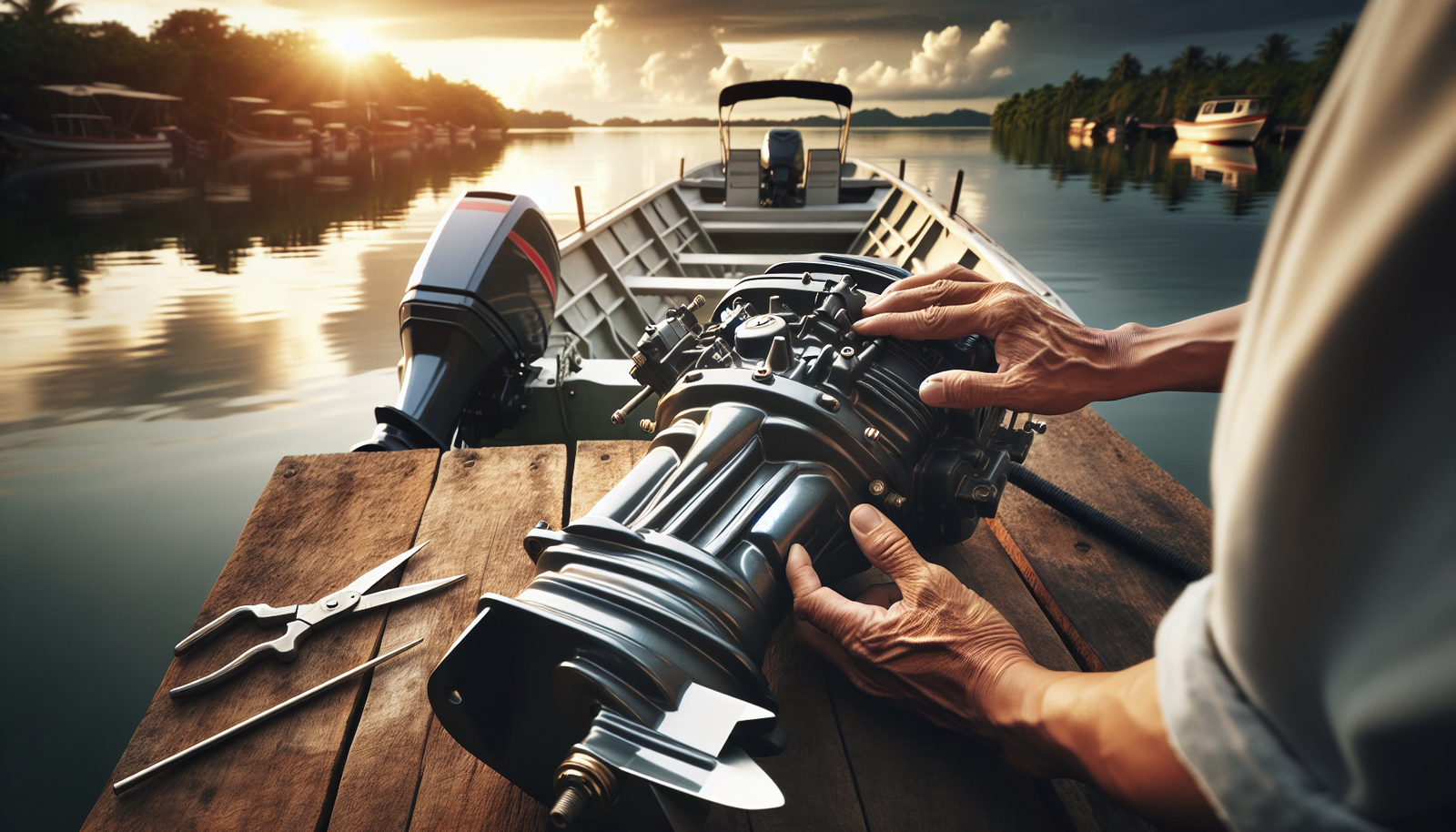In “Best Ways to Perform Routine Boat Engine Checks,” we’re heading out onto open waters to explore the essential strategies that can help you maintain an efficiently running maritime machine. This guide breaks down the process into easy-to-follow steps, providing you with knowledge about areas of your boat’s engine that are key for spotting early signs of potential issues. From simple inspections for visual wear and tear to checking for leaks and testing engine oil, everything you need to confidently carry out these routine checks will be right at your fingertips. It’s your guide to extending your vessel’s lifespan and ensuring every journey is smooth sailing.
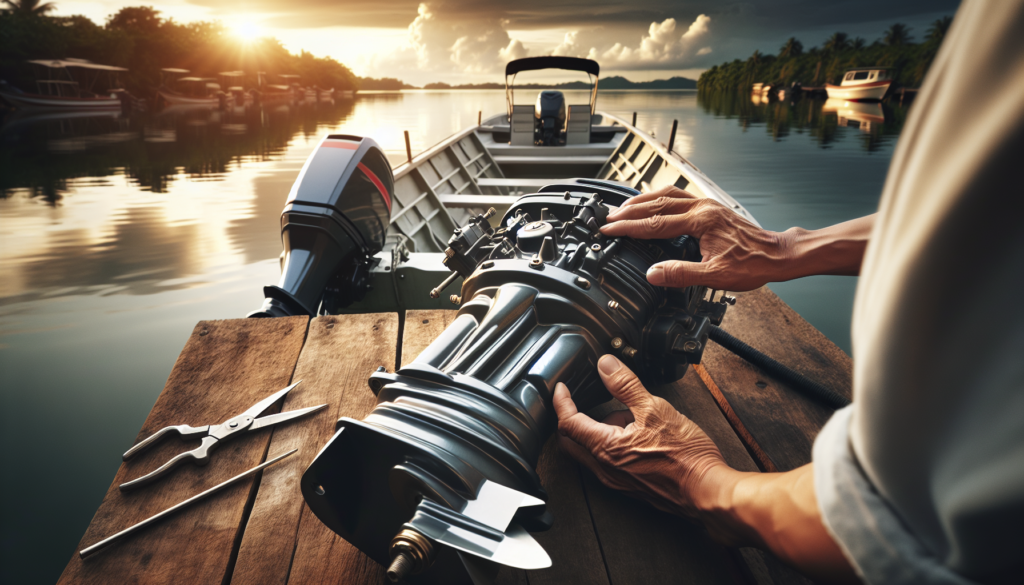
Understanding the Importance of Regular Boat Engine Checks
Having a boat can be a lot of fun and provide you with a unique way to relax and enjoy the water. But, like with any vehicle, maintaining it is key to ensure its long-term usability. Regular boat engine checks are not only crucial but also beneficial in many ways.
Why regular engine checks are essential
The idea of venturing out on open water only to have your boat breakdown midway is a nightmare no boat-owner wants to face. Regular engine checks help ensure the smooth operation of your boat and can prevent unexpected, inconvenient, and potentially dangerous breakdowns, thus ensuring the safety of you and your passengers.
Potential issues that can be prevented with routine checks
Routine checks can help prevent an array of potential issues including engine failure, overheating, fuel leaks, battery problems, and mechanical wear and tear. Early detection can save you from hefty repair bills down the line.
Improving engine performance and longevity with timely maintenance
Timely maintenance not only enhances the performance of your boat’s engine but also plays a vital role in extending its life. By changing fluids and replacing any damaged parts promptly, you’ll keep your engine running optimally for a longer period.
Getting Started: What You Need for Your Engine Check
Before you dive into the engine check, a few prerequisites need your attention.
Necessary tools and equipment
A standard toolbox with essential tools like screwdrivers, pliers, a wrench set, and a socket set should be sufficient. Add to that a flashlight for better visibility, and oil and coolant for topping off if required.
Safety measures to observe
Before any check, always ensure that the engine has cooled down completely to avoid burns. Also, wear safety goggles to protect your eyes, and gloves to shield your hands from sharp objects and harmful chemicals.
Understanding your boat’s make and model specifications
It’s essential to know about your boat’s make, model, and specific maintenance needs. This information can usually be found in the manufacturer’s manual. Following these guidelines can help maintain the warranty of your boat if applicable.
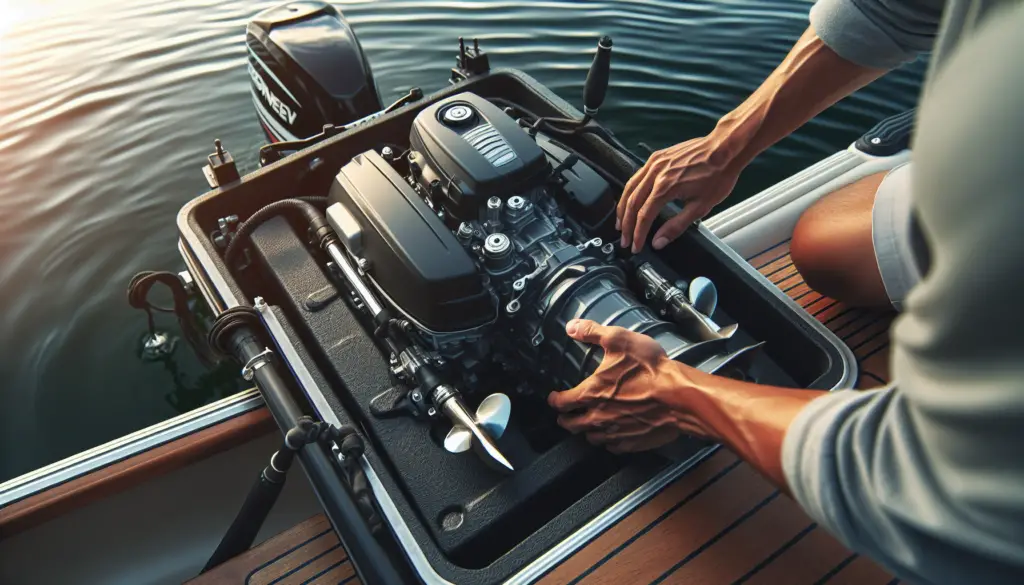
Visual Inspection of the Boat Engine
The first line of action when performing an engine check is visual inspection.
Checking for visible signs of wear and tear
A primary check includes looking for signs of wear and tear in various engine parts like the fuel hoses, cables, belts, and seals. If they’re cracked, ruptured, or too tight, they may need replacing.
Inspecting for leaks and corrosion
Leaks can be a clear indicator of a problem at hand. Keep an eye out for any fluid leakage, particularly fuel or coolant leakage. Also, inspect for any caps or plugs that appear loose or corroded.
Evaluation of hoses, belts, and cables
Doing a thorough check of the hoses, cables, and belts for any signs of fraying, cracking, or other damage is critical. If these parts don’t work properly, issues like overheating and low battery voltage can occur.
Checking the Engine’s Fluid Levels
Maintaining the engine fluids at the proper level is crucial to its smooth operation.
Monitoring the engine oil level
Engine oil lubricates the moving parts, thereby preventing overheating caused by friction. Regular oil checks can avoid damage to the engine due to lack of lubrication.
Examining coolant and transmission fluid levels
The function of the coolant is to absorb heat from the engine, and the transmission fluid prevents the wear and tear of the gears. Both should be checked regularly and replaced according to the manufacturer’s recommendations.
What to look for and when to change these fluids
Checking the fluids isn’t just about levels; the color and consistency matter too. Engine oil should be amber in color and smooth in texture. If it’s cloudy or has a milk-like appearance, it might indicate a coolant leak. Coolant should typically be bright neon (green, yellow, or orange) and if it turns rusty or brownish, it’s a sign of contamination. Such abnormalities call for immediate attention.
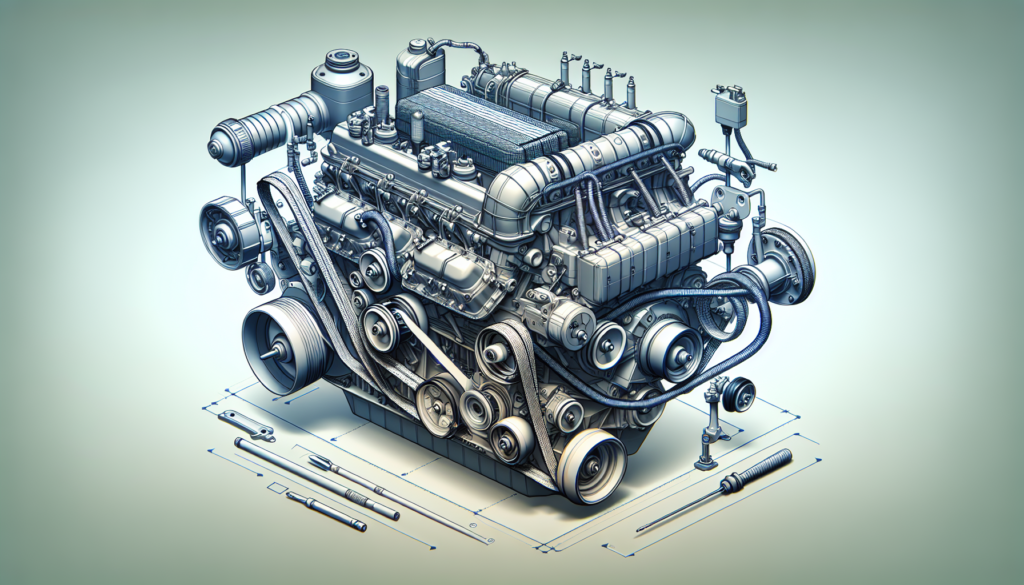
Inspecting the Fuel System
Checking for leaks and damage
Ensure there are no leaks; any sight of fuel trail or smell is an alert. Also, check the fuel lines for cracks or damage that might lead to leakage.
Examining the fuel filters and lines
Fuel filters and lines must be clean and in good shape to ensure efficient fuel delivery to the engine. Replace them if they look clogged or degraded.
Knowing the signs of potential fuel system issues
Odour of fuel, difficulty in starting, poor fuel efficiency, and performance decline are signs of potential fuel system issues that you should watch for.
Engine’s Electrical System Inspection
A well-functioning electrical system is just as important as keeping your engine running smoothly.
Reviewing the condition of batteries and alternator
Measure the battery’s voltage to ensure it can start the engine successfully. Also, check the alternator’s performance as it charges the battery while the engine is running.
Checking all engine-related electrical connections
All connections should be clean, dry, and tightly secured. Look for any signs of corrosion or cracks.
Verifying the functionality of all lights and electronic instruments
Ensure all the lights are in working order and check all gauges, meters, and other electronic instruments for proper functionality.
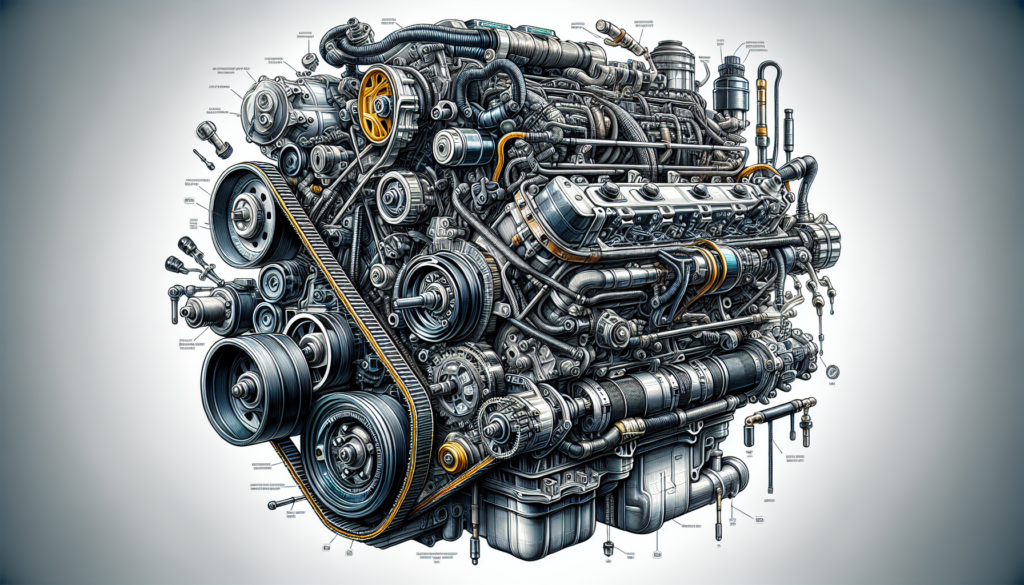
Examining the Bilge
Importance of a clean and dry bilge
A clean and dry bilge is important for your boat’s longevity. It houses the discharge water from the deck and other flat surfaces and enroute harbors various contaminants like oil and chemical spills.
Identifying possible leaks in the bilge
Check for water pooling or any signs of oil leakage. Not only can these lead to engine issues, but they can also harm the marine ecosystem.
Proper methods to clean and maintain the bilge
Regularly clean the bilge using suitable marine-grade cleaning products. Avoid using detergents as they can emulsify the oil, making it harder to remove.
Checking the Propeller and Lower Unit
The propeller and lower unit are highly susceptible to damage from underwater objects.
Inspection of the propeller for any damages
Check for any propeller damages like nicks, dings, or cracks, which can cause vibration, and over time, lead to severe damage to the drive system.
Checking the gear case for any leaks
Gear case housing has seals that prevent water intrusion. However, these seals can wear out, leading to leaks. Regular checks can prevent this.
Maintenance of the seals and propeller shaft
Check the seals for wear or damage and make sure the propeller shaft has a snug fit to avoid wobbling.
Assessing the Boat’s Exhaust System
A malfunctioning exhaust system can lead to overheating and damaging the engine.
Understanding the signs of a faulty exhaust system
Watch for smoke emission, unusual noise, or an unexpected drop in power, as these can be signs of a faulty exhaust system.
Routine check methods for the exhaust manifold and components
Inspect the exhaust manifold for any cracks or leaks. Also, check the hoses, seals, and gaskets as their failure can lead to coolant leakage.
When to call a professional for exhaust system-related issues
Anything beyond simple checks and minor repairs should be handled by professionals due to the complexity and criticality of the exhaust system.
Importance of Regular Boat Engine Service
Regular servicing by professional mechanics is as important as your maintenance checks.
When to get professional engine services
Routine maintenance and inspections can prevent minor issues from escalating into major ones. However, it’s recommended to avail professional services at least once every year or as suggested in your boat’s manual.
The role of professional services in boat engine maintenance
Professional mechanics have the expertise and resources to fix underlying issues that might be overlooked during regular checks. They carry out a more detailed examination and can troubleshoot potential issues that you may not be able to detect.
Choosing the right service provider for your boat engine
Choose a reputable mechanic that specializes in boat engines and provides good customer service. You can consult fellow boat owners or online reviews to make an informed decision.
Remember, regular checks are crucial for the long-term well-being and performance of your boat engine. Keep it in shipshape, and it will provide you with many sunny days on the water.

